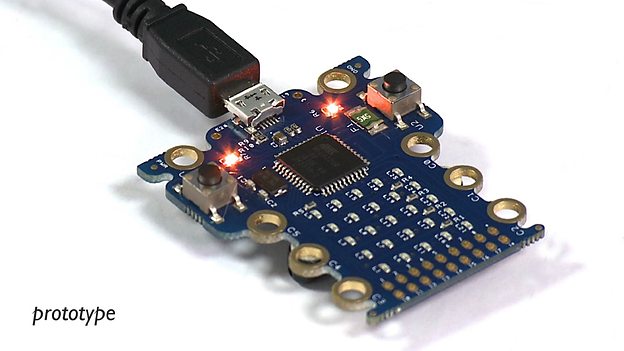BBC Plans on Giving Away 1 Million ‘Micro Bit’ PCs for Kids to Learn Coding
If you are a British student that is year 7 (11 years old) during the Fall of 2015 you’ll be getting a new mini-computer called the ‘Micro Bit’ to play around with thanks to the BBC. The tiny device is meant to be wearable and was designed to be connected to an LED display that the children can program to show text or play simple games. When the Micro Bit launches in September, 2015 the ARM-based system will be compatible with three coding languages – Touch Develop, Python and C++. The goal here is to get kids familiar with entry-level coding at a young age and then more advanced devices when they are older. The BBC plans on giving away 1 million devices in total, which should cover all year 7 students! There are no plans to sell the Micro Bit or bring it to the retail market.
More than 25 partners are actively involved in bringing the Micro Bit to market and without their hardware and financial support this project would not have been possible. Some of those companies will likely be familiar to our readers as they include ARM, Freescale, Microsoft and Samsung among others. The Micro Bit was not designed to rival to similar DIY computing devices such as Raspberry Pi, Arduino, Galileo and Kano, but rather be the gateway to the more advanced programmable systems. It is reported that the UK is facing a shortage of highly skilled ‘digital professionals’ and this program could certainly solve that issue with this generation of kids.
Our more mature readers might remember the BBC Micro that came out in the early 1980’s for the BBC Computer Literacy Project. The program was created by Dr. Christopher Evans of the UK’s National Physical Laboratory ahead of what was predicted to be the coming microcomputer revolution.

